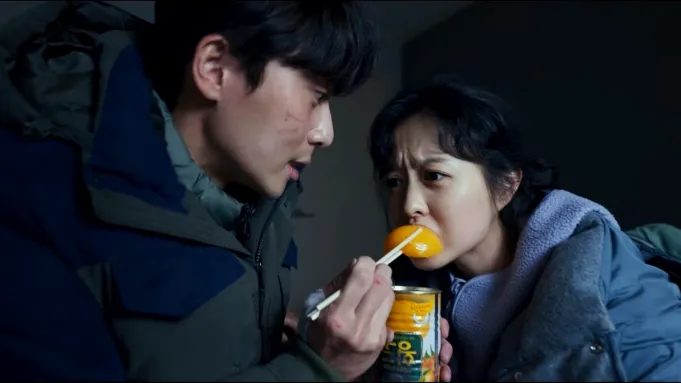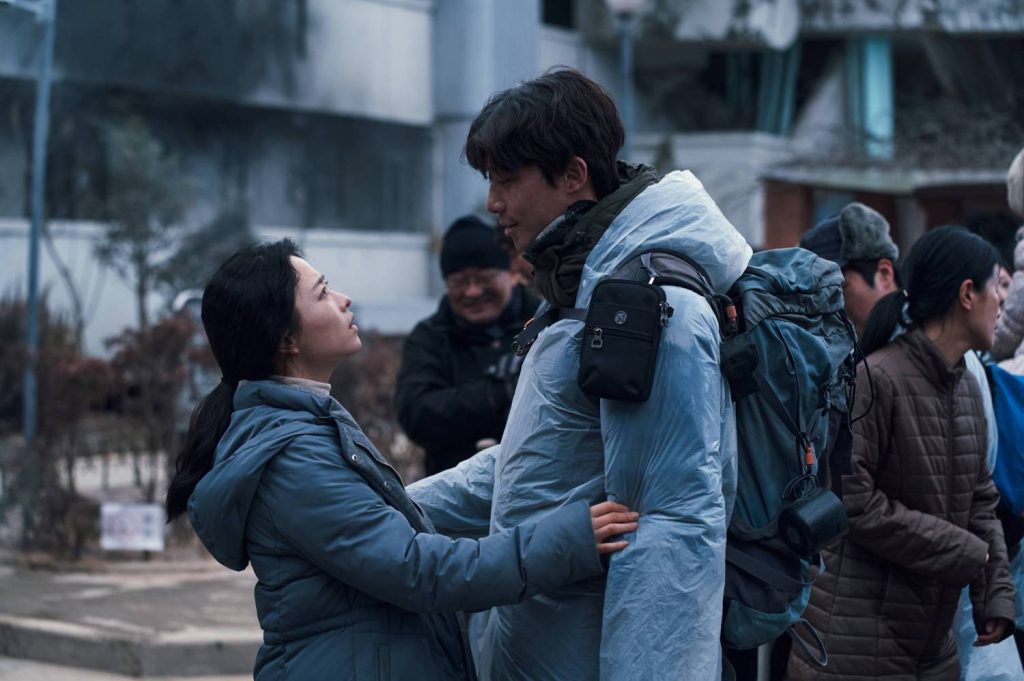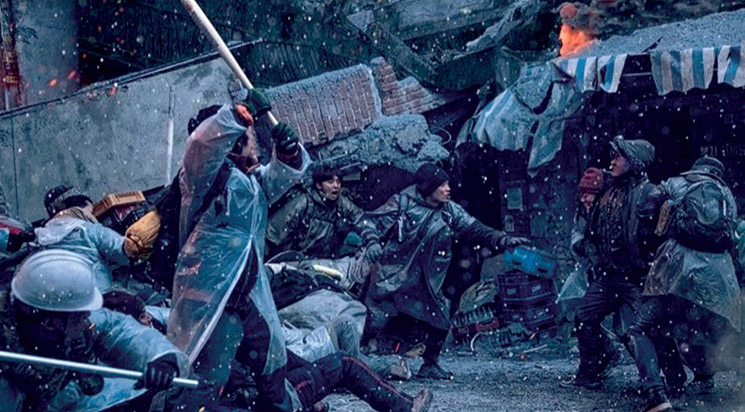London East Asia Film Festival 2023 returns to London with a diverse programme from East and Southeast Asia, including international and UK premieres.
Angelina Lim reviews Concrete Utopia, a disaster thriller that follows a community of survivors of a massive earthquake as they struggle for a new life in a decimated city.
Rule number one: The apartment belongs to the residents and only the residents can live in it.
After an earthquake wipes out Seoul, the last-standing apartment complex, Hwang Gung Apartments, becomes its residents’ Concrete Utopia. As the name suggests, the film focuses not on the disaster, but how the apartment’s residents organise themselves in its aftermath. We follow them as they attempt to restore order in a world where there is suddenly “no difference between a murderer and a pastor”.
From the very start, Director Um Tae Hwa places us in the middle of the action. Myeong Hwa (Park Bo-Young) and Min-Seong (Park Seo-Joon), a nurse and ex-civil Servant couple, wake up to a desolate Seoul skyline. Before they know it, the lobby is filled with sleeping bags and barter trade, in a scene reminiscent of other post-apocalyptic films. Faced with threats of these “outsiders” and depleting rations, residents elect “Mr Delegate” Young-Tak (Lee Byung-hun) and Women’s Association Leader Geum-ae (Kim Sung-Young) as their leaders. Young-Tak rules with an iron fist, watchful eye, and a deep love for his fortress. With clasped hands and a straight face, he confesses: “I feel like our apartment complex has been chosen.”
This deadpan outlook and satirical tone runs deep throughout the film – for one, “Hwang Gung” directly translates to Imperial Palace. In another notable shot, the camera pans 360 as Young-Tak admires the building, flashing a proud smirk. These pockets of humour are a needed respite from the heavier themes of the film. Women work in the infirmary while the men work in Korean military-style expedition groups. The threat of eviction looms over residents’ heads if three strict (and frankly, undemocratic) rules are not abided by. After residents are suspected of providing refuge for outsiders, an “internal cleansing” leaves a group of good-hearted Samaritans begging for forgiveness. In Um’s Concrete Utopia, the “good guys” never seem to win.

Um’s desire to reinvent the often banal and clichéd dystopian genre is clear from the cultural elements that form the backdrop. In land-scarce Seoul, society has an obsession with owning-high rise apartments. With the deed to an apartment a symbol of success, a feeling of separation is quickly established between non-residents and residents. In one scene, Min-Seong is accused of not truly owning his place, to which he quickly defends his loans. At a meeting, residents bond over the hardship they overcome to buy their own place. Director Um puts it best in the post-movie Q&A: “Where you live is who you are”.
The exploration of gender roles, morality, and class, and a group of fleshed out characters makes for an ambitious film. But the plotlines never really reach their full potential. The sudden arrival of new resident Hye-won (Park Ji-hu) sparks a series of events that imbues the plot with new direction and purpose. Just as suspense builds and drama escalates, the storyline is abruptly interrupted. The occasional cut scenes to backstories also show a clear intention to develop complex characters, with intricacies and individual narratives. Yet when one such scene progresses to a gruesome murder, one is left wondering if any sympathy can be feigned.

Nevertheless, the strong performances from the star-studded cast keep the work grounded. Park Bo-Young executes Myeong Hwa with nuance, presenting a soft, kindhearted character that ultimately lacked courage to make the right decisions until it directly implicated her family. Her humanity directly contrasts the ruthlessness of Lee’s Young-Tak, who portrays the film’s “villain” with laser-sharp accuracy.
In the last few moments, Myeong Hwa starts a new journey with a different community of survivors. Here, the film pushes for one last message: What is the true nature of “ordinary” people in times of crisis? While Um’s ideas are undoubtedly interesting, Concrete Utopia’s fresh take on the genre is overshadowed by the chaos it presents. Chaos in terms of the sheer volume of ideas and messages, as well as the seemingly unending challenges faced by its characters.




